Darkest Hour
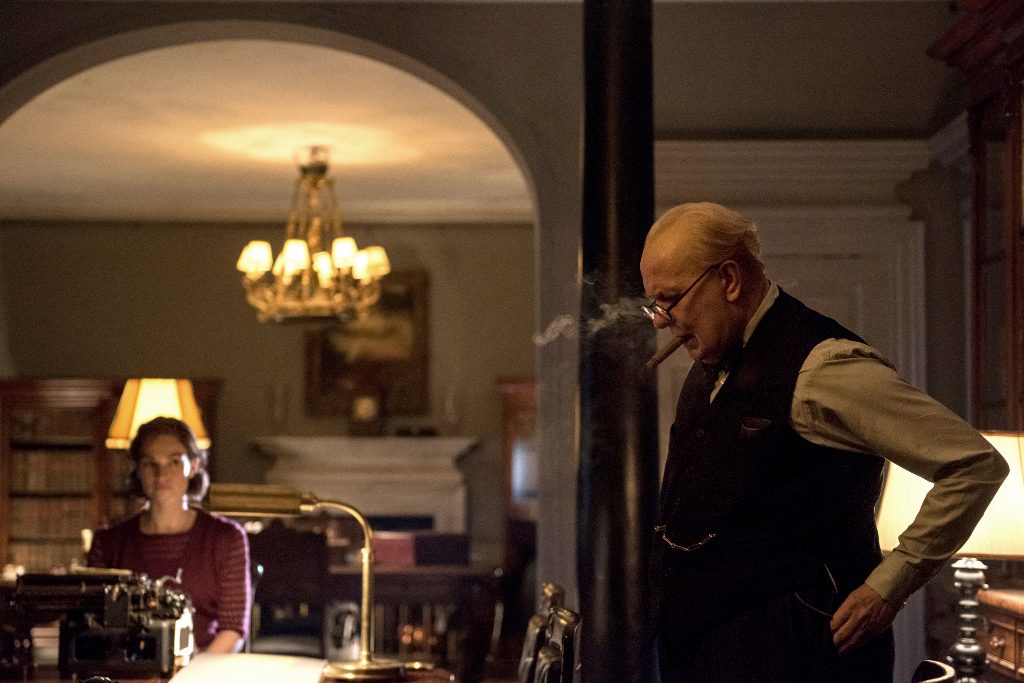
Unity of space, unity of time, and unity of action: the perfect drama, according to Aristotle, follows these rules. It cannot be by chance that Churchill himself retreats to the classics in one of the initial scenes of Darkest Hour, when, preparing the speech for his first broadcast to the nation, he wanders around 10 Downing Street, barefoot and gown-clad, searching for Cicero. By sticking to the enduring canon, and using impressive cinematic techniques, Anthony McCarten and Joe Wright offer an outstanding historical drama that shows us a compellingly human Churchill.
With the resignation of Chamberlain (Ronald Pickup) and Hitler conquering Europe, the choice for the new Conservative Prime Minister was the only man the opposition would accept – although not favoured at all by both his own party and King George VI (Ben Mendelsohn). In May 1940, the country seemed on the brink of Nazi invasion, and Winston Churchill was faced with the history-defining decision between persisting in an apparently hopeless battle or sitting for peace negotiations with the dictators.
The Prime Minister is mumbling, plagued with doubts and rough, and this honest and intense portrait is set against the nerve-racking atmosphere of the British political theatres of the Second World War. Gary Oldman, almost unrecognisable under the perfect make-up and enlarging prosthetics, delivers a flawless and astonishing performance.
The story is confined within the London scene, with rare escapes to the mainland battlefield, mostly Calais – which, together with Dunkirk, is the hot topic of the ongoing military discussions. Avoiding thus geographical and temporal stretches, the script can revolve around the crucial days of the decision makers, focusing on the emotional strain at the top levels. We follow Churchill in the darkest moments of his first term, his sleepless nights, the funny inspirational pauses in the bathroom, the omnipresent cigar puffings. There is poetry, not so much aimed to form a mushy picture, but rather to inspire and impress viewers with the stamina and the imperfect figure of a great leader.
There are amusing lines scattered throughout the serious meetings with the king, and Churchill’s grumpy rebukes, but what really allows the dialogues to breathe is the perfect balance between pauses and discourses, the assembly roars and the confidential conversations, the hushed advice and the national speeches.
The few rather sentimental scenes and the theatrical beams of light descending from the roof are greatly forgiven for the remarkable cinematography. The camera favours intimate framing, guiding the viewers with smooth movements. Everything is powerfully accompanied by Dario Marianelli’s evocative score, which splendidly sustains the narration.
Darkest Hour is an impressive reenactment of a crucial historical period, spectacularly simple in its structure, yet – maybe exactly because of this – a cinematic sensation.
Cristiana Ferrauti
Darkest Hour is released nationwide on 12th January 2018.
Watch the trailer for Darkest Hour here:

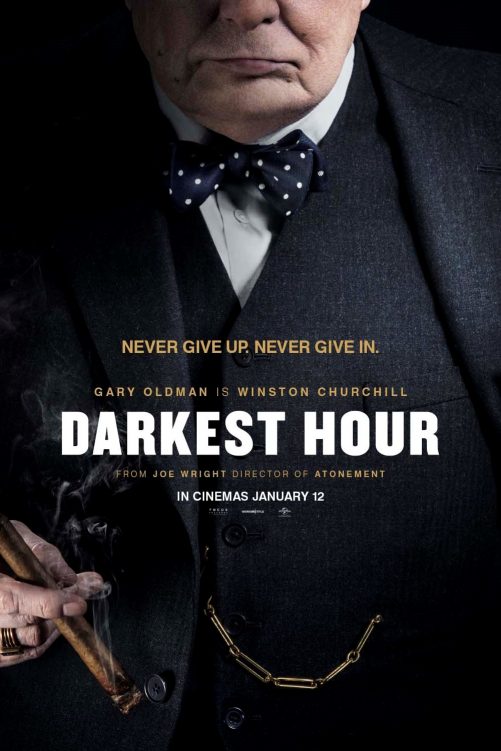
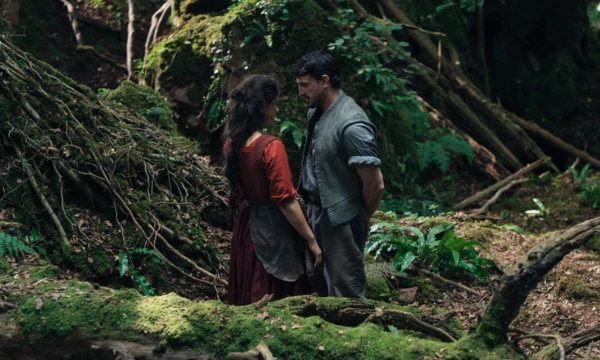
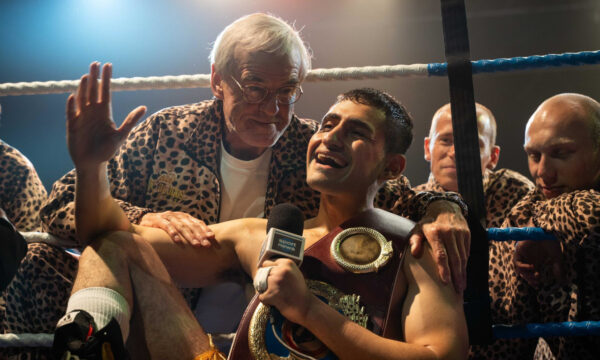
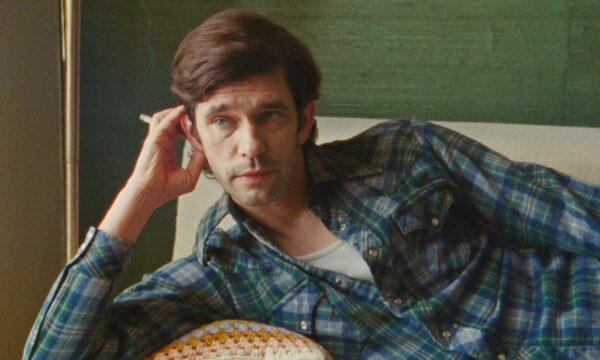
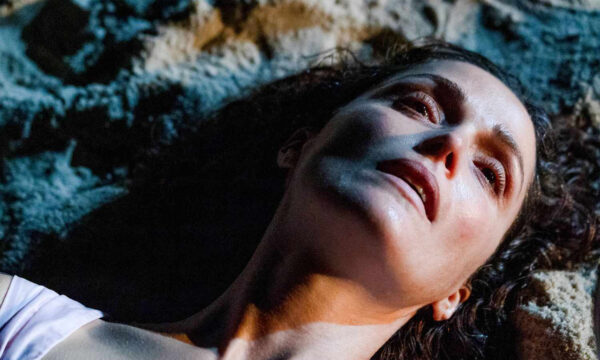
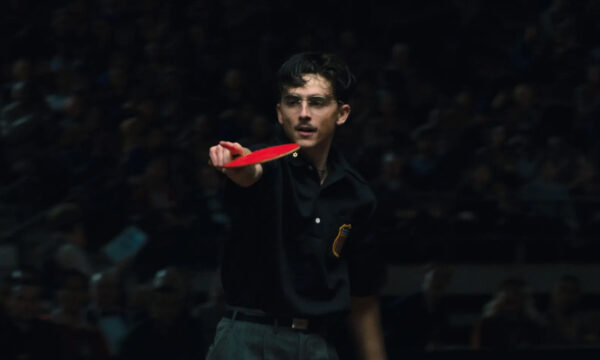
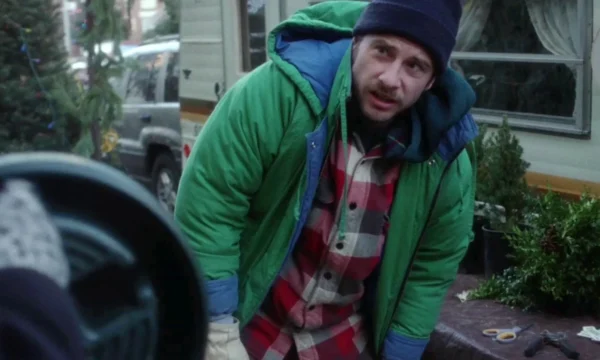
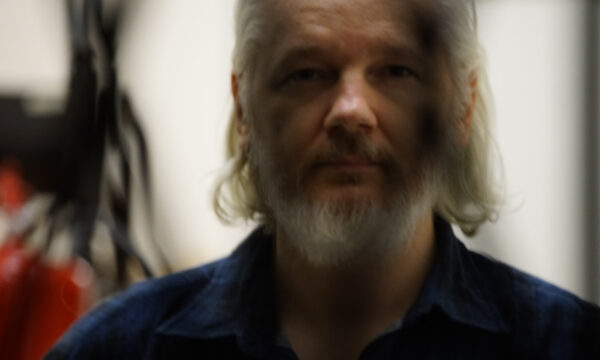
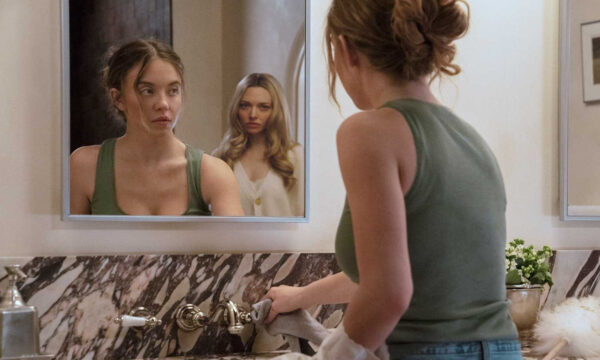

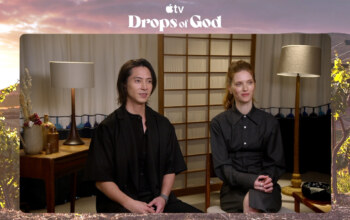
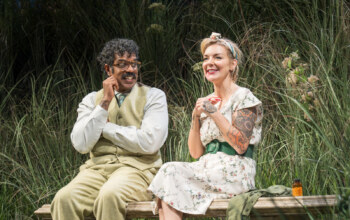
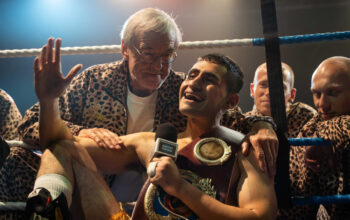

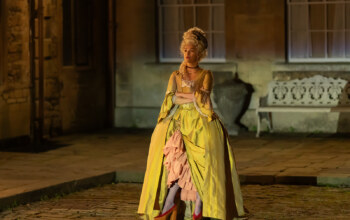
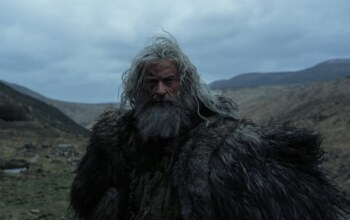
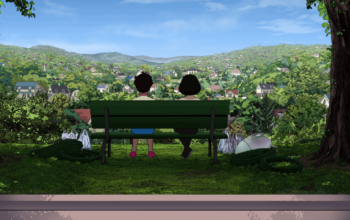




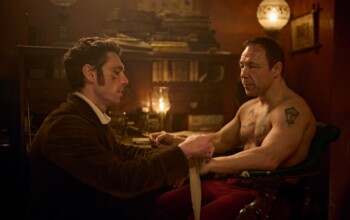
Facebook
Twitter
Instagram
YouTube
RSS